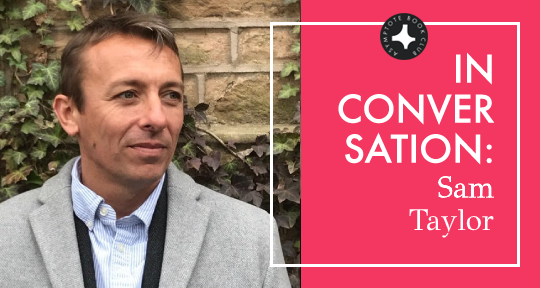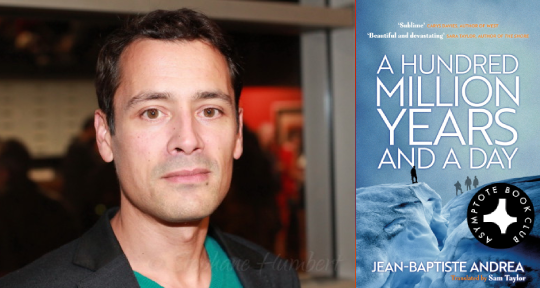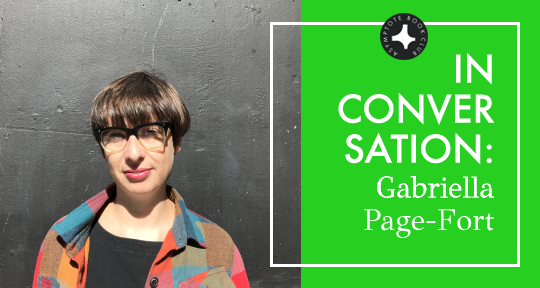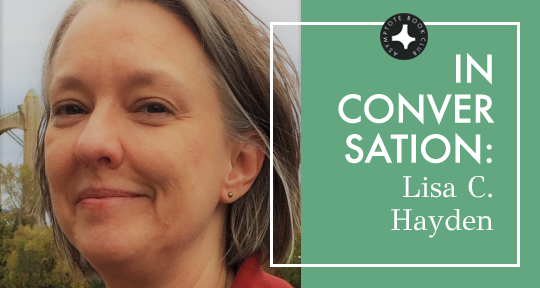In her recent review of our fabulous September Book Club selection, Editor-at-Large Allison Braden praised the book’s candor, humor, and heart, as well as its fresh take on Moroccan culture. Below, she revisits these and other topics in conversation with award-winning translator and former Asymptote member Emma Ramadan. Straight From The Horse’s Mouth, they agree, defies our preconceptions of Morocco, its women, and the makings of great literature in translation.
The Asymptote Book Club aspires to bring the best in translated fiction every month to readers around the world. You can sign up to receive next month’s selection on our website for as little as USD15 per book; once you’re a member, you can join the online discussion on our Facebook page!
Allison Braden: I want to start by asking how you found this book. What attracted you to the story?
Emma Ramadan: Other Press came to me and asked if I wanted to translate the book, and I read it through and loved it. What I really like about it, and what I have tried to look for in other translation projects I’ve pitched, is that it’s by a Moroccan writer and it’s about Morocco, but not the cliched version of Morocco that can get neatly packaged to American readers. This happens with a lot of countries where there aren’t that many English translations already in existence: there’s an expectation that they will read a certain way, or that they will educate us about a certain aspect of that country or culture, as if that were the only thing those literatures were supposed to do. I like that this book doesn’t really provide the view of Morocco that English-language readers might have in mind, or that publishers might want to sell to them. It’s a wild Morocco that is both more devastating and more fun than anyone might expect. I love Jmiaa’s story, and I love her voice, and I love that she’s allowed to have a painful existence as a sex worker but also a radical transformation into a famous movie star. It’s a really fun book, and we don’t get a lot of those from certain countries.
AB: I noticed on Twitter that you said you often wish for more fun and funny books in translation. I’m curious about why you think there aren’t as many of those.
ER: I have a lot of thoughts about this, but I’ll sum them up by saying that I think there’s a certain pressure when you’re pitching a translation, or when publishers are acquiring a translation, for it to be a big, important, prize-worthy book; it’s very expensive to do translations, and there’s this idea that they don’t sell very well, so to make sure you’re getting your money’s worth, there needs to be some important hook or payoff in the form of big reviews or awards. These more fun, funny, light books that have a lot to say—that definitely have their readers and an importance of their own—may not seem as appealing or worthy in that way, but I would really disagree. Sometimes you just want to translate a book because it’s really good, and good doesn’t necessarily mean heavy and political and invested with all this cultural capital about what it means to live in a specific place. Sometimes it can just be a great book. And that should be, and is, enough.
AB: You’ve also translated some very serious Moroccan literature—I’m thinking of Ahmed Bouanani’s The Shutters. Did translating that inform your translation of Straight From the Horse’s Mouth, even though it’s such a different tone and genre?
ER: It did inform my translation insomuch as I got to know Morocco very well through that project, living there as I was working on it. So then, in translating this other book that’s very much set there, I was able to say, “Okay, they’re going to this town, I know what that town looks like.” It was deeply informative in that way, even if it’s a very different kind of book. There are other comparisons to be made, too: Bouanani uses some language that resists being translated, and in Straight From the Horse’s Mouth, Meryem Alaoui uses Arabic words in her French text that I left in Arabic, so both authors are writing from a culture that uses multiple languages. The challenge for me there was letting all those voices come through and not forcing them into some kind of neat English. READ MORE…














Announcing our August Book Club Selection: People From My Neighborhood by Hiromi Kawakami
The portrayal and analysis of collective experience makes this a text that truly meets our moment.
As we continue into the latter half of this increasingly surreal year, one finds the need for a little magic. Thus it is with a feeling of great timeliness that we present our Book Club selection for the month of August, the well-loved Hiromi Kawakami’s new fiction collection, People From My Neighborhood. In turns enigmatic and poignant, as puzzling as it is profound, Kawakami’s readily quiet, pondering work is devoted to the way our human patterns may be spliced through with intrigue, strangeness, and fantasy; amongst these intersections of normality and sublimity one finds a great and wandering beauty.
The Asymptote Book Club aspires to bring the best in translated fiction every month to readers around the world. You can sign up to receive next month’s selection on our website for as little as USD15 per book; once you’re a member, you can join the online discussion on our Facebook page!
People From My Neighbourhood by Hiromi Kawakami, translated from the Japanese by Ted Goossen, Granta, 2020
Like a box of chocolates, Hiromi Kawakami’s People From My Neighbourhood (translated from the Japanese by Ted Goossen) contains an assortment of bite-sized delights, each distinct yet related. This peculiar collection of flash fiction paints a portrait of exactly what the title suggests—the denizens of the narrator’s neighborhood—while striking a perfect balance between intriguing specificity and beguiling universality. The opening chapters introduce readers to each of the neighborhood’s curious inhabitants, while later chapters build upon the foundation, gradually erecting a universe of complex human relationships, rigorous social commentary, immense beauty, and more than a little magic.
Existing fans of Kawakami’s will surely recognize these common features of her award-winning body of work, while first-time readers will likely go searching for more. Goossen is better known as a translator of Murakami and editor of the English version of the Japanese literary magazine MONKEY: New Writing from Japan (formerly Monkey Business); ever committed to introducing Anglophone readers to non-canonical Japanese writers, he brings his flair for nonchalant magical realism to this winning new collaboration.
The first story, “The Secret,” introduces readers to the anonymous narrator and sets the tone for the collection. First presented as genderless, (we only find out later that she is female) she discovers an androgynous child, who turns out to be male, under a white blanket in a park. The child, wild and independent, comes home with her. Despite occasional disappearances, he keeps her company as she ages, all the while remaining a child. In this story, we receive her only concrete—but general—description of herself: “I’ve come to realize that he can’t be human after all, seeing how he’s stayed the same all these years. Humans change over time. I certainly have. I’ve aged and become grumpy. But I’ve come to love him, though I didn’t at first.” This one statement exemplifies many of the collection’s trademark characteristics and overarching themes: a version of time in which past, present, and eternity coexist, the supernatural, and the narrator’s fascinating method of characterization. READ MORE…
Contributor:- Lindsay Semel
; Language: - Japanese
; Place: - Japan
; Writer: - Hiromi Kawakami
; Tags: - family
, - fantasy
, - Japanese literature
, - Magical Realism
, - social commentary
, - strangeness
, - Women Writers